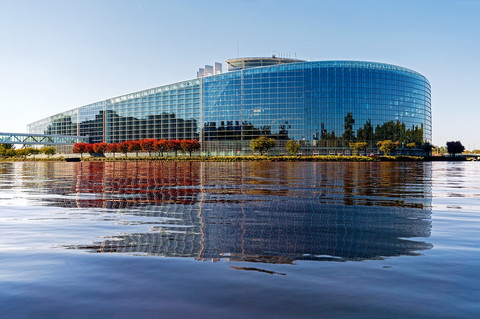[ad_1]

The EU institutions on Friday (7 May) reached a provisional agreement on the working arrangements for the Conference on the Future of Europe – which will finally launch this Sunday, on Europe Day, after a year’s delay caused by the Covid-19 pandemic.
The provisional agreement, expected to be ratified on Sunday, came after a new row over the role of the conference’s plenary – which is where proposals made during the citizens’ panels will be discussed.
After long negotiations, the European Parliament finally managed to convince EU member states and the European Commission of the need to include citizens proposals in the outcome of the conference.
That means that the executive board, in charge of drawing up the conclusions of the conference, will have to collaborate with the conference plenary “in a fully transparent way,” Green MEP Daniel Freund tweeted.
The conference plenary will be composed of representatives from the main EU institutions, as well as national parliamentarians, regional deputies, social partners, NGOs, plus randomly-selected citizens. Of the 430 participants, 108 will be citizens.
As a result, any citizens’ proposals approved in the plenaries will be reflected in the final report, which will collate the conclusions of the conference by spring 2022 – a timely date for French president Emmanuel Macron, who was a major force in pushing the idea.
“The conference will be open for any input. If citizens propose policies that require treaty change they will not be rejected,” Freund also said.
The approved proposals which will feed into the 2022 report will be made by consensus, between representatives of national parliaments, European Parliament, Council and Commission.
“I am glad we now found an agreement so that the Conference on the Future of Europe can start on 9 May, one year later than expected,” MEP Iratxe García, leader of the Socialists & Democrats, told EUobserver.
“From now on I hope we can change the focus, and leave the institutional fights aside, so we can listen to what citizens want to say about our shared future,” she added.
Similarly, the former president of the European Council, Belgium’s Herman van Rompuy, said that “the conference must produce results that are tangible to people and not get bogged down in institutional debate”.
Besides the conference’s plenaries, the European Parliament has suggested working groups with citizens and dialogues with political families, where national and European deputies can engage in discussions.
EU commissioner for democracy Dubravka Šuica said this conference will help put citizens “at the heart” of EU policy-making, by giving them a stronger say.
“Ultimately we hope to strengthen our connection with citizens – all the more crucial as we emerge from the ongoing health crisis – and reinforce their trust and belief in the European project,” she told EUobserver.
Europe Day
Macron, as well as EU institutional presidents David Sassoli, Ursula von der Leyen and Portugal’s prime minister Antonia Costa, will participate in Sunday’s event, alongside the chairs of the conference’s executive board.
The inaugural event will take place in the European Parliament building in Strasbourg.
A group of 27 Erasmus students from all member states will be at the hemicycle, while around 300 citizens are expected to attend remotely.
[ad_2]
Source link